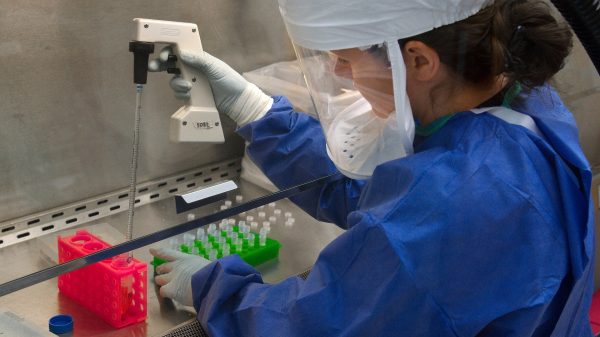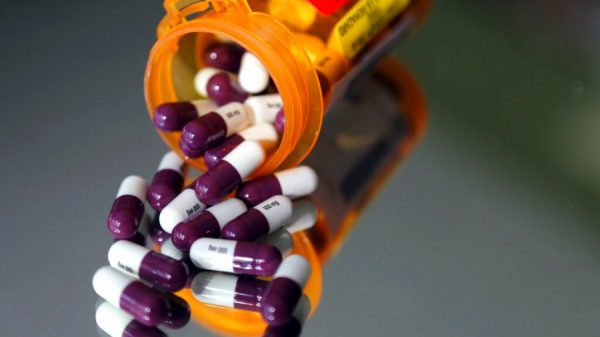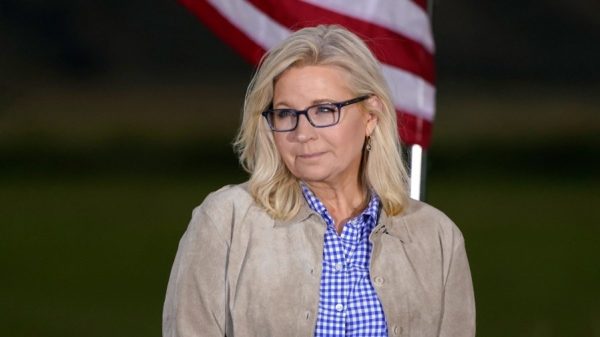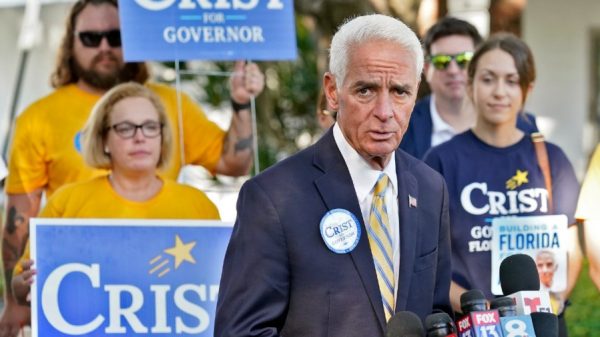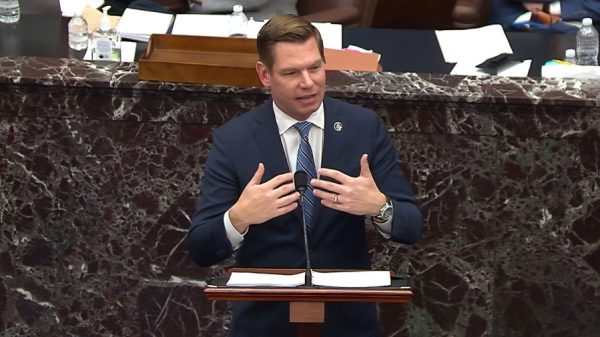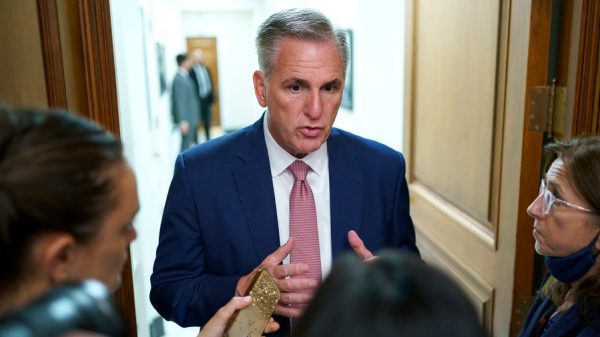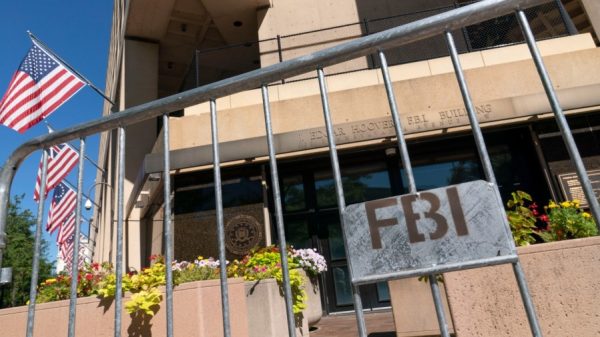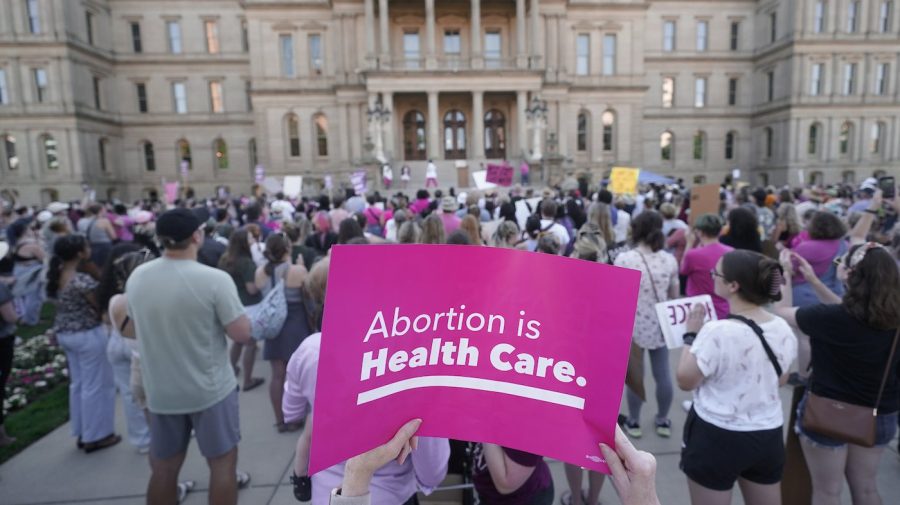In case you need to be reminded, Martin Short is still one of the funniest comedians around. The man managed to fit a hundred jokes into five minutes of airtime and even The Fonz approves.
Today in health care, abortion will remain legal in Michigan for the foreseeable future after a key court ruling.
Welcome to Overnight Health Care, where we’re following the latest moves on policy and news affecting your health. For The Hill, we’re Peter Sullivan, Nathaniel Weixel and Joseph Choi. Someone forward you this newsletter? Subscribe here.
Judge stops enforcement of abortion ban
A Michigan judge Friday blocked county prosecutors from enforcing a 91-year-old law banning abortion in the state while courts consider a lawsuit seeking to overturn the law.
The takeaway: The ruling means abortion will remain legal in Michigan for the foreseeable future. The 1931 law bans abortion for all women, doesn’t include exceptions for rape or incest and calls for the prosecution of reproductive care providers.
The ruling comes after the state Court of Appeals earlier this month cleared a path for county prosecutors to enforce the 1931 law by ruling they were not covered by a May order.
- “It is clear to the Court that only one group is harmed by this statute- women and people capable of carrying children,” Oakland County Judge Jacob Cunningham said during his ruling.
- The 1931 abortion ban doesn’t pass constitutional muster, he said.
Governor Gretchen Whitmer (D) requested the temporary restraining order to block prosecutors from enforcing the law, which was triggered when the U.S. Supreme Court overturned the landmark Roe v. Wadedecisionin June.
Stay tuned: Voters could ultimately decide the fate of abortion in Michigan through a ballot initiative seeking to enshrine abortion rights into the state’s constitution.
Read more here.
Bill would make gender-affirming care a felony
Rep. Marjorie Taylor Greene (R-Ga.) introduced a bill Friday that would make providing gender-affirming medical care to transgender minors a felony, punishable by up to 25 years in prison.
The measure would prohibit using federal funds for gender-affirming health care, including in Affordable Healthcare Act plans.
- “When it comes to ‘gender-affirming care,’ which is really child abuse, this is actually an assault and it’s child abuse,” Greene said Thursday evening during an appearance on Fox News’s “Tucker Carlson Tonight.”
- “This practice should never happen,” Greene told host Tucker Carlson. “It’s so disgusting and appalling … this needs to be illegal.”
What it does: Greene’s “Protect Children’s Innocence Act” outlaws more than a dozen medical interventions and procedures used to treat gender dysphoria in transgender young people, including puberty blockers, hormone therapy and certain kinds of surgeries done “for the purpose of changing the body of such individual to correspond to a sex that differs from their biological sex.”
Under Greene’s bill, anyone who “knowingly performs any gender-affirming care on a minor” is guilty of a class C felony, carrying a punishment of 10 to 25 years in prison and a maximum fine of $250,000, Greene’s office said.
Read more here.
ALMOST HALF OF FATAL CANCER CASES LINKED TO AVOIDABLE FACTORS
Almost half of all cancers that lead to death can be attributed to risk factors that are avoidable, a new study found, with researchers advising that governments invest in supporting environments that minimize exposure to certain cancer risk factors.
The study, which looked at cancer cases from 2019 and was published in The Lancet, found that 44 percent of cancer deaths were what researchers referred to as risk-attributable cancer deaths, meaning cancers that could be linked to higher exposure to certain risk factors for the disease.
The findings:
- On a global scale, the leading risk factors were smoking, alcohol and high BMI in descending order. These risk factors were the same for both male and female patients.
- The same study found that 42 percent of cancer-related disability-adjusted life-years — the number of years lost to living not at full health or with a disability — could be attributed to risk factors.
Income-dependent shifts: The burden of risk-attributable cancers varied across regions, with smoking, unsafe sex and alcohol being the leading risk factors in lower-income, socially disadvantaged countries. Higher-income countries tended to reflect the global risk factors, according to researchers.
“Although some cancer cases are not preventable, governments can work on a population level to support an environment that minimises exposure to known cancer risk factors,” researchers said.
Read more here.
HONG KONG REOPENS COVID-19 ISOLATION FACILITY AS CASES SPIKE
Hong Kong plans to reopen one of its largest COVID-19 isolation facilities amid climbing case numbers that stand at a four-month high.
“We are very concerned,” Lau Ka-hin, the Hong Kong Hospital Authority chief manager of quality and standards, said of the rate of cases, according to Bloomberg. “We’ve come to a very key moment and we are worried that the situation may deteriorate further.”
The situation: Hong Kong reported 6,445 new cases on Friday, 1,898 of which are being treated in hospitals, putting pressure on the country’s hospital system.
Of the almost 2,000 COVID-19 patients in hospitals, 25 have serious cases of the virus while an additional 36 are in critical condition and 10 are in intensive care.
- Lau said at a Friday briefing that an isolation facility will open up next week, providing 200 hospital beds for COVID-19 patients and employing 100 health care workers.
- He added that some services will be reduced at Hong Kong hospitals, specifically minor nonemergency services.
Read more here.
DC schools relaxing COVID-19 protocols
The Washington, D.C., public school system announced Thursday evening during a town hall that it would relax COVID-19 measures ahead of the 2022-23 school year.
Dropped guidelines: D.C. Public Schools (DCPS) announced that it will no longer be conducting daily health screenings on students upon arrival to school. However, DCPS is asking parents to screen their children for COVID-19 symptoms every day before sending them to the classroom.
- The district will also no longer require students and staff to quarantine following a COVID-19 exposure — unless they are exhibiting symptoms, which is DCPS’s biggest change from last school year’s guidance. The latest guidance has been updated in accordance with the Centers for Disease Control and Prevention’s recommendations.
- Asymptomatic weekly testing from the prior school year will now be discontinued at schools, except for at the start of the school year when “test to return” will be conducted.
What’s still required: Anyone who tests positive for COVID-19 will still be required to isolate for five days, and parents will receive a notice in writing or in an email if someone in the child’s class tests positive.
Masks will remain optional in the classrooms, though students who have tested positive for COVID-19 will be required to wear a mask until day 10 following their positive test after the end of their five-day isolation period.
Read more here.
WHAT WE’RE READING
- Abortion is shaking up attorneys general races and exposing limits to their powers (Kaiser Health News)
- Birth control coverage gaps scrutinized as reproductive health landscape shifts (Politico)
- Vance’s anti-drug charity enlisted doctor echoing Big Pharma (AP)
- ‘A poster child’ for diversity in science: Black engineers work to fix long-ignored bias in oxygen readings (Stat)
STATE BY STATE
- 16 more states hope to weigh in on Idaho abortion lawsuit (AP)
- Nebraska brain-eating amoeba death confirmed by Centers for Disease Control (KPTM)
- Less than 60% of kids are vaccinated against polio in some NYC neighborhoods (ABC News)
THE HILL OP-EDS
- Monkeypox may be on its way to a school near you
- Monkeypox, Marburg and miserable heat: How the world should respond to intersecting crises
- Murray’s drug bill includes a poison pill for prescription imports
- Telemedicine abortion? It’s not as easy as it sounds
- We’ve put America’s children last — and it shows
That’s it for today, thanks for reading. Check out The Hill’s Health Care page for the latest news and coverage. See you next week.
VIEW FULL VERSION HERE





